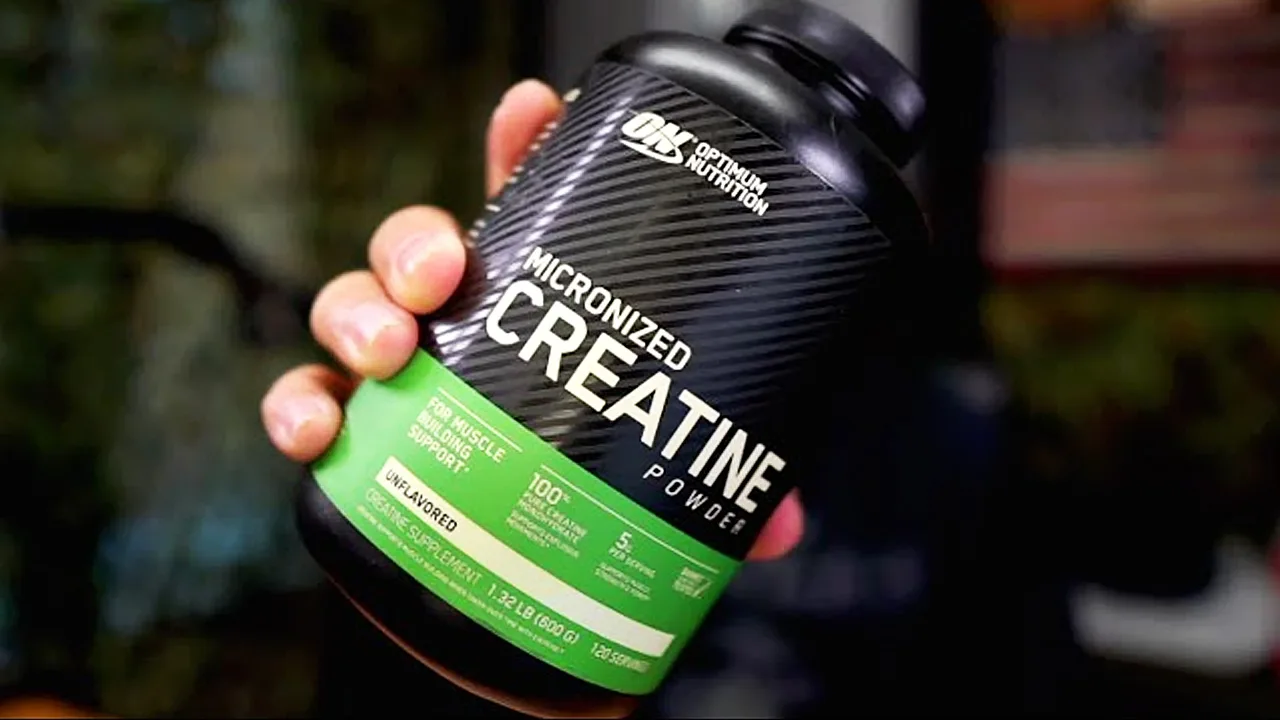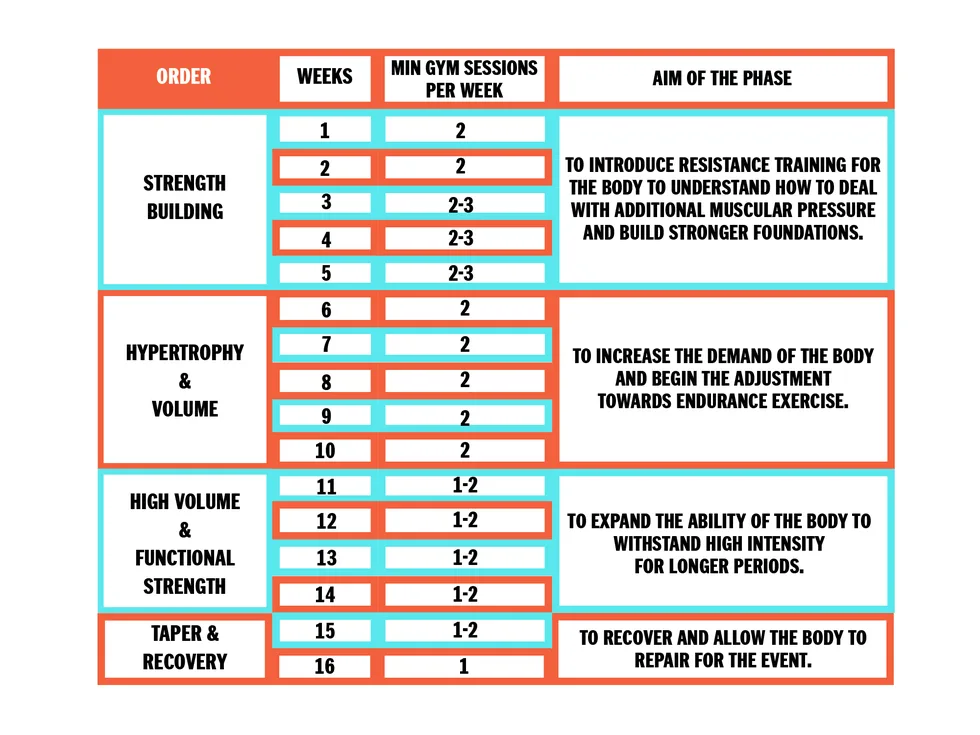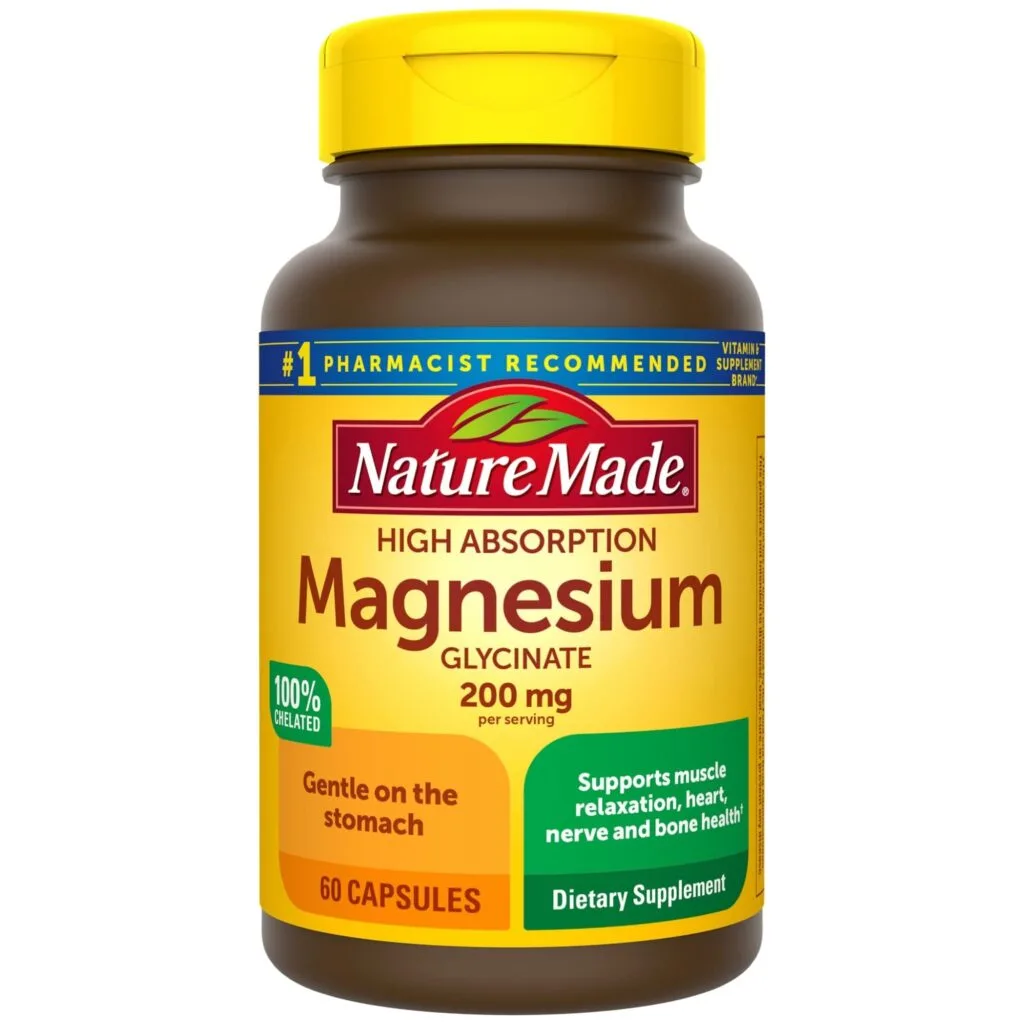Creatine does not need to be taken at the exact same time every day. Consistency in daily intake is more important than timing.
Creatine, a popular supplement among athletes and fitness enthusiasts, enhances performance and muscle gain. To reap the full benefits, users should focus on maintaining consistent daily consumption rather than fixating on a specific time. The body’s creatine stores will increase over time with regular use, which helps in muscle energy production during intense activities.
Although some suggest timing it around workouts for potential added benefits, the key to effective creatine supplementation lies in the cumulative effect of daily use. The flexibility of creatine intake also makes it a convenient option for those with varying daily schedules, ensuring that it can easily fit into any lifestyle.
Creatine Timing: Myth Vs. Reality
Does creatine need strict scheduling? The debate is hot. Some gym-goers swear by a precise clock. Others take it whenever. Let’s explore the facts.
Common Beliefs About Creatine Timing
Many gym enthusiasts believe timing is crucial for creatine. Some common timing strategies include:
- Pre-workout: For energy boost.
- Post-workout: For recovery.
- With meals: For better absorption.
- Before bed: For muscle repair.
These beliefs suggest a specific window for optimal effects.
Research Insights On Timing And Absorption
What does science say? Recent studies give us a clearer picture:
| Study | Findings |
|---|---|
| Pre vs. Post-Workout | No significant difference in muscle growth. |
| With Carbs/Protein | May improve creatine retention. |
| Consistent Daily Time | Not necessary for effectiveness. |
Research hints at flexibility. It focuses more on regular intake than exact timing.
Understanding Creatine Function
Creatine plays a crucial role in your body’s energy systems. Whether you are lifting weights or sprinting, your muscles need energy. This is where creatine steps in.
Role In Energy Production
Your muscles have something called ATP. ATP stands for adenosine triphosphate. When you work out, ATP breaks down to give energy.
Creatine’s job is to restore ATP. It does this by donating a phosphate group. This process helps you maintain energy during high-intensity exercises. Here’s a simple way to picture it:
- Exercise uses ATP energy.
- ATP turns to ADP (adenosine diphosphate).
- Creatine gives ADP a phosphate.
- ADP becomes ATP again.
Effects On Muscle Performance
Intense training requires quick energy restoration. That is where creatine becomes important.
Creatine boosts muscle performance in a few ways:
- It helps make more ATP.
- It speeds up ATP recovery.
- It can increase water content in muscle cells.
With more ATP, muscles can work harder and longer. This leads to increases in strength and muscle mass. Creatine can also improve muscle recovery during and after workouts.
Understanding creatine helps you use it better. Knowing when to take it can maximize its benefits. Let’s explore if timing really matters for creatine intake.

Biochemistry Of Creatine
Welcome to the intricate world of creatine biochemistry. Creatine, a nutrient acclaimed for its performance-boosting potential, has a detailed story at the molecular level. Delving into how our bodies store and utilize this compound reveals why its timing may not be as critical as you think.
How Creatine Is Stored In The Body
In our cells, creatine is largely stored as phosphocreatine. This is a form your muscles can quickly use. Muscle fibers hold the bulk of creatine. Different fibers store different amounts. For example, fast-twitch fibers, the ones used in quick, powerful movements, store more creatine than slow-twitch fibers.
| Muscle Fiber Type | Creatine Storage Capacity |
|---|---|
| Fast-Twitch Fibers | High |
| Slow-Twitch Fibers | Lower |
The liver, kidneys, and pancreas also produce creatine regularly. They send it to muscles through the bloodstream. Once it arrives, your muscles convert it and store it as phosphocreatine.
The Creatine Cycle Explained
Let’s explore the creatine cycle. It’s a continuous loop that powers your muscle contractions. Here’s how it works:
- Your body uses ATP for muscle contractions. ATP stands for adenosine triphosphate.
- After ATP releases energy, it becomes ADP (adenosine diphosphate).
- Phosphocreatine donates a phosphate group to ADP, regenerating ATP.
- Your body then uses this refreshed ATP for more muscle power.
This cycle is crucial during short, intense exercises like sprinting or heavy lifting. Phosphocreatine replenishes ATP quickly, letting you sustain maximum effort.
In simple terms, your muscles use creatine all the time. It does not matter much when you take it. What matters is keeping the supply steady in your system. That’s why consistent daily intake is key.
Importance Of Consistency In Supplementation
Taking supplements like creatine works best with a routine. Our bodies love a schedule. Consistency helps us reap the full benefits of supplements. When it comes to creatine, timing might not be crucial, but regular intake might just be the key to unlocking its true potential. Let’s dive into why sticking to your supplement regimen can make all the difference.
Benefits Of Regular Intake
Keeping a steady routine with creatine can lead to:
- Improved muscle growth: Regular doses support muscle fiber growth.
- Enhanced strength: Strength gains appear with ongoing use.
- Consistent energy levels: Energy for workouts stays high.
Every day counts. Skipping doses can set you back. Let’s see why sticking to a plan is the smarter approach.
Potential Drawbacks Of Irregular Consumption
Not taking creatine consistently can lead to:
| Drawback | Effect |
|---|---|
| Lower muscle saturation | Less creatine in muscles |
| Reduced performance | Less power during workouts |
| Inconsistent results | Longer wait for gains |
Maintaining your supplement intake each day is critical. Missed doses disrupt the benefits. It also means longer waits for those gains you’re working towards. Regularity is key to maximizing your efforts.
Factors Influencing Creatine Uptake
Creatine is popular among athletes for boosting performance. Timing isn’t critical for creatine intake. Yet, certain factors influence its uptake into muscles. Let’s dive into how meals and exercise enhance creatine absorption.
Interaction With Meals And Macronutrients
Meals play a key role in how well the body absorbs creatine. Combining creatine with carbohydrates and proteins may increase its uptake. This combo spikes insulin, which helps shuttle creatine into muscles. Here’s what studies show:
| Macronutrient | Impact on Creatine |
|---|---|
| Carbohydrates | Insulin spike aids creatine absorption |
| Proteins | Works with carbs to enhance uptake |
Eating a balanced meal with creatine may lead to better muscle stores of this compound. Prefer a combination of carbs and protein for best results.
The Role Of Exercise In Creatine Absorption
Exercise impacts how muscles take in creatine. During workouts, muscle fibers are primed to absorb nutrients, including creatine. This is crucial:
- Working out may increase cell hydration.
- Muscle fibers may absorb more creatine.
Some prefer post-workout creatine for optimal absorption. The reason is simple. Post-workout, your muscles are like sponges. They soak up creatine efficiently.
Different Approaches To Creatine Supplementation
Exploring the optimal way to supplement with creatine often leads to a debate. Every person’s body is unique, which means there is not just one answer. By understanding the different approaches to creatine supplementation, you can tailor your intake to fit your body’s needs and your workout goals.
Loading Phase Vs. Maintenance Phase
The approach to creatine use often starts with the loading phase. This involves taking a higher dose for a short period. Typically, this means 20 grams per day for 5-7 days.
After the loading phase, the maintenance phase keeps creatine levels high. Around 3-5 grams daily is the usual dose. Both phases aim to saturate the muscles effectively with creatine.
| Phase | Daily Dose | Duration |
|---|---|---|
| Loading | 20g | 5-7 days |
| Maintenance | 3-5g | Continued |
Scheduled Vs. Unscheduled Dosing
Scheduled dosing means taking creatine at set times each day. This helps some keep consistent. For example, always after a workout or with breakfast.
- Routine helps with daily consistency.
- Key times include post-workout or with meal.
On the other hand, unscheduled dosing is more flexible. It does not tie you to a clock or routine. This can benefit those with varying daily schedules.
- Flexible and adaptable to any lifestyle.
- No strict timing needed.
Expert Opinions On Creatine Timing
Expert Opinions on Creatine Timing spark curiosity among fitness enthusiasts. A common question arises: “Is there an ideal time to take creatine?” Different professionals offer insights rooted in science and experience. Let’s explore what the experts suggest regarding creatine supplementation timing.
Nutritionists’ Views On Supplementation
Nutritionists emphasize balancing creatine intake with a nutrient-rich diet. Creatine’s absorption enhances with certain foods, particularly those high in carbohydrates and protein. Experts suggest:
- Combine creatine with a meal for improved uptake
- Choose meals with a high glycemic index
- Consistency outweighs specific timing for daily creatine use
Nutritionists also highlight the importance of hydration. Since creatine draws water into muscle cells, adequate water intake is crucial to avoid potential cramping.
Recommendations From Strength And Conditioning Coaches
Strength and conditioning coaches deal with performance. They regard creatine timing as a potential lever for better results. Peak performance often aligns with creative strategies for creatine supplementation. Coaches recommend:
- Taking creatine post-workout for muscle recovery
- Immediate pre-workout use may boost performance
- Maintaining regular intake on non-training days
While some studies show marginal benefits in precise timing, these coaches maintain that overall daily intake holds the greatest significance. Adherence to regular supplementation, in their view, trumps the exact timing nearly every time.
Crafting Your Creatine Routine
An effective creatine routine boosts performance and supports muscle growth. The timing of your intake may affect these benefits. Let’s dive into personalizing your supplementation schedule and monitoring your intake.
Personalizing Your Supplementation Schedule
The myth that creatine must be taken at a precise time each day persists. Yet, research suggests otherwise. Flexibility is key in a creatine routine. Here’s how to make it work for you:
- Consider your daily routine: Pick a time when you are most likely to remember your supplement.
- Listen to your body: If morning works for you, stick to it. If you prefer evenings, that’s also fine.
- Post-workout could be optimal: Some evidence suggests that taking creatine after a workout may yield better results.
Maintaining consistent daily intake is more crucial than the exact timing. Stick to the 3-5 grams daily recommendation.
Monitoring And Adjusting Your Intake
Observing your body’s response is vital for a tailored creatine plan. Here’s how to monitor and adjust:
- Track your progress: Note any changes in performance and muscle development.
- Adjust as needed: No improvements? Consider altering your dosage with a healthcare provider’s guidance.
- Stay hydrated: Creatine can increase the need for water. Ensure you drink plenty.
| Week | Dosage | Notes |
|---|---|---|
| 1-2 | 5g daily | Initial response observation |
| 3-4 | Adjust if needed | Consult professional before change |
Remember, a personalized creatine schedule supports your body’s unique needs. Make necessary adjustments based on your observations.
Myths And Faqs About Creatine Timing
Let’s dive into the swirling pool of myths and FAQs about creatine timing. People often wonder when to take this popular supplement. Here, we clear up confusion and answer top questions with facts.
Debunking Common Myths
Myth 1: Creatine must be taken post-workout – Not true! Creatine works well regardless of the time you take it. Consistency is key, not the clock.
Myth 2: Pre-workout creatine boosts performance instantly – Creatine doesn’t work instantly. It builds up in your system over days.
Myth 3: Late-night creatine leads to insomnia – Rest easy! Creatine doesn’t affect sleep cycles, so feel free to take it at night.
Answers To Frequent Creatine Timing Questions
- Q: Is morning the best time for creatine?
A: Anytime is fine. Choose a time that suits your routine. - Q: Should I take creatine on rest days?
A: Yes, maintain daily intake to keep muscle levels optimal. - Q: Can I take creatine before bedtime?
A: Absolutely, no time is off-limits.
Here’s a quick table for myth-busting at a glance:
| Myth | Truth |
|---|---|
| Creatine is only effective post-workout | No, it’s about daily intake, not timing. |
| Creatine use is time-sensitive | Nope, taking it at the same time daily is not crucial. |
| Taking creatine at night hinders sleep | Sleep easy, there’s no effect on your snooze. |

Comprehensive Guide To Creatine Timing
Welcome to our Comprehensive Guide to Creatine Timing. In this guide, we’ll explore the timing of creatine supplementation. We debunk myths and provide evidence-based advice. Our goal is to optimize your supplementation routine for the best results. Let’s dive into when and how often you should take creatine.
Best Practices For Effective Supplementation
Creatine maximizes athletic performance and muscle growth. But timing matters. Follow these best practices for most benefits:
- Consistency over timing: Daily intake is key, regardless of the time.
- Post-workout may have slight advantages: Studies suggest this improves muscle recovery and growth.
- With a meal: Taking creatine with carbohydrates and protein may enhance absorption.
- Splitting doses can be easier on the stomach: Instead of one large dose, try two to four smaller doses.
- Stay hydrated: Creatine increases water retention in muscles, so drink plenty of fluids.
Remember individual responses vary. Monitor your body and adjust as needed. Let’s summarize these pointers for clarity.
Summarizing Key Takeaways For Optimal Results
Focusing on key points ensures you get the most out of creatine. Here’s what to keep in mind:
| Key Takeaway | Benefit |
|---|---|
| Consistent Daily Intake | Builds and maintains creatine levels effectively. |
| Timing Around Workouts | Potentially boosts post-workout recovery and muscle gain. |
| Combining with Meals | May help with better creatine uptake and absorption. |
| Dose Splitting | Minimizes digestive discomfort and maintains stable creatine levels. |
| Hydration | Essential for preventing cramps and facilitating muscle hydration. |
By embracing these practices, you’ll be on the path to enhanced performance and muscle development. Incorporate creatine into your routine wisely. Monitor your progress, and listen to your body. For more fitness tips and nutrition advice, keep following our blog!
Frequently Asked Questions On Does Creatine Need To Be Taken At The Same Time
Does Creatine Timing Matter?
Creatine timing does not greatly impact its effectiveness. Taking it before or after workouts can both support muscle growth and performance.
Can I Take Creatine In The Morning And Workout At Night?
Yes, you can take creatine in the morning and workout at night. Consistent daily consumption is key for maintaining saturated muscle stores.
What Is The Best Time To Take Creatine?
The best time to take creatine is post-workout when your muscles are primed to absorb nutrients. Alternatively, timing is less critical if you take it daily, maintaining its levels in your muscles.
How Long Should You Wait Between Creatine Doses?
Typically, you should wait at least 24 hours between creatine doses to maintain optimal levels in your muscles. Regular daily intake is key for best results.
Conclusion
Wrapping up, the timing of creatine intake isn’t bound to a strict clock. Personal schedules can guide your decision, supporting workout effectiveness and convenience. As long as you’re consistent with daily dosage, benefits remain intact. Prioritize your routine and fine-tune supplementation to your lifestyle for optimal results.











